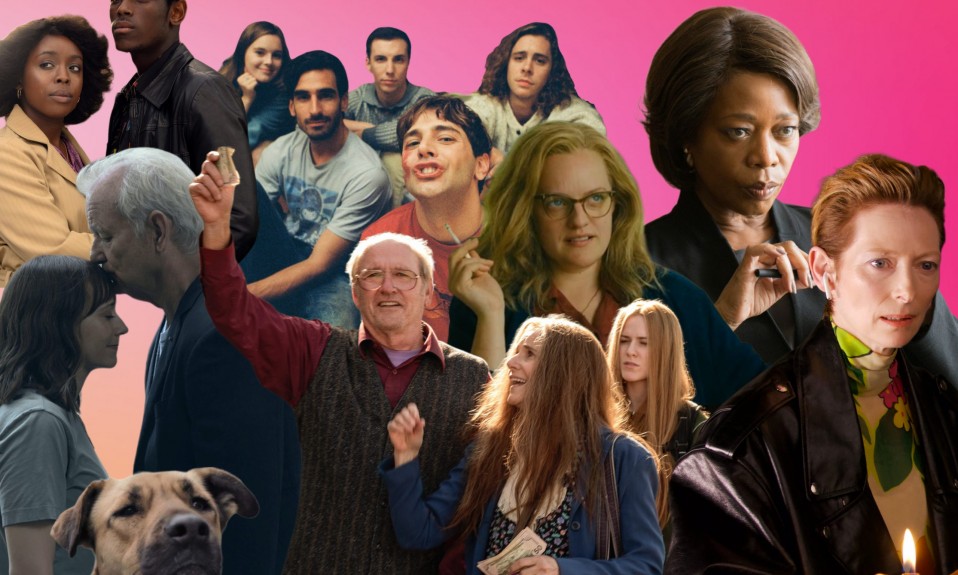2020 has been a year of reckoning for film. We lost access to cinemas for a considerable portion of the year, film festivals moved online, and online screenings became the norm. Big blockbuster releases ran the gauntlet early on, like Tenet, or retreated into 2021 like No Time to Die and Black Widow. Most films arrived via streaming platforms, like Netflix or Amazon, while some trialled video-on-demand services day-and-date with a theatrical release. But it all meant smaller films were pushed into focus because the monolith that is blockbuster filmmaking was, for the most part, absent. Their model of filmmaking, which requires movies to make hundreds of millions of dollars just to breakeven, was exposed as unsustainable, and it meant independent film could shine through (and some especially great performances.)
I’m not naïve enough to think this will last. Wonder Woman: 1984 is due next week, the first significant tentpole movie since Tenet, and is also the first to be included on Warner Bros. plan to release their entire 2021 slate on HBO Max alongside theatrical releases. Disney also just vomited up about a thousand new Star Wars and Marvel projects to air on Disney+ over the next few years. So, yes, blockbusters will make a comeback, but how you consume them might be different.
Still, 2020 provided some respite and, so, in no particular order, these are my favourite movies from this past year…
Kajillionaire
(dir. Miranda July)

Miranda July, feminist oddball, artist, and author, returned this year with her third feature; Kajillionaire. It was a strange, lush, and queer heist comedy about family and love. I loved July’s previous films for their introspective look at loneliness and connection. I love the weird performance art videos she makes on Instagram, and I love her short stories and novels. Basically, I’m all in on Miranda July.
Kajillionaire sits in line with all the things I love about her work as it follows a dysfunctional family, who get by on running small scams, when they are faced with an interloper and all she can offer. It’s a beautifully queer story about finding your value and understanding that you don’t have to sit with the cards you’re dealt. It also has a lot to say about how our parents will ultimately disappoint us, but that might not ring true with the kind of folk that has a family Whatsapp group.
You can read my full review here.
On The Rocks
(dir. Sofia Coppola)
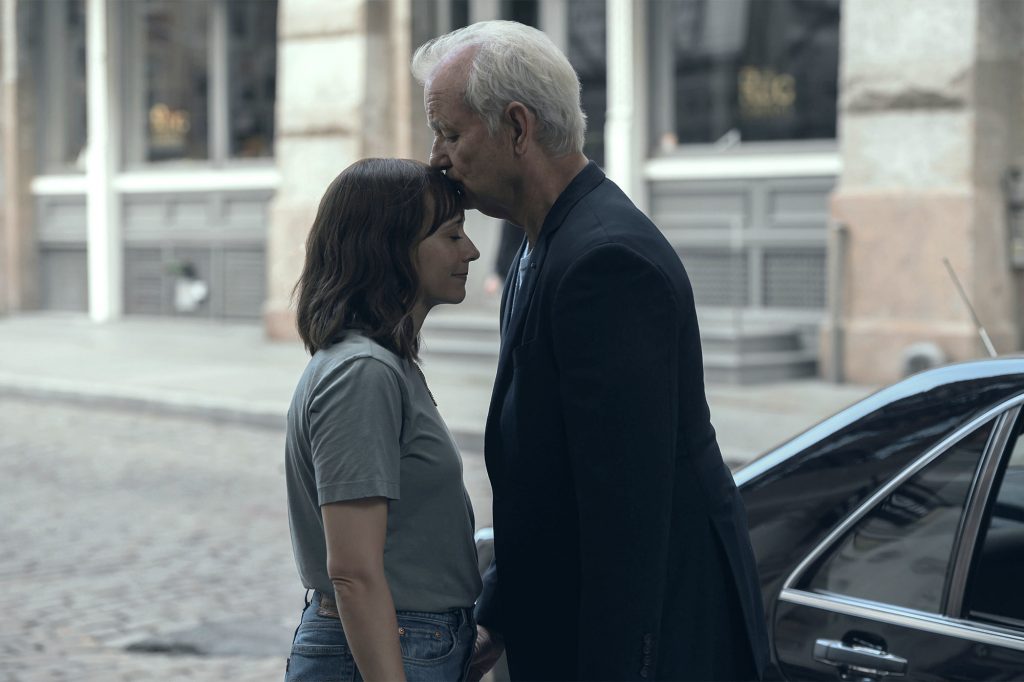
Sofia Coppola has made a name for herself by exploring the specific malaise of young women. From The Virgin Suicides to The Bling Ring, Coppola has given reverence to a period in woman’s lives that is so often ignored or used as background noise to a male protagonist’s story. On the Rocks, her latest film, instead looks at a woman approaching middle-age and a marriage that is, as the title suggests, struggling.
One night, when Laura (Rashida Jones) is sleeping, her husband (Marlon Wayans) returns home from a business trip, he climbs onto the bed, half-asleep, and starts kissing her only to wake up and look surprised that it’s Laura in front of him. Suspicious, Laura begins to spiral. Is he cheating? Who was he expecting to see? Is their marriage falling apart? She enlists the help of her bachelor, and vaguely misogynistic, father (Bill Murray) to help find out.
I’ve been a fan of Coppola since I first saw Lost in Translation nearly a decade ago and On The Rocks, significantly lighter in tone than her previous films, feels like a notable pivot in direction for her. It excites me to think about what might be to come.
Shirley
(dir. Josephine Decker)
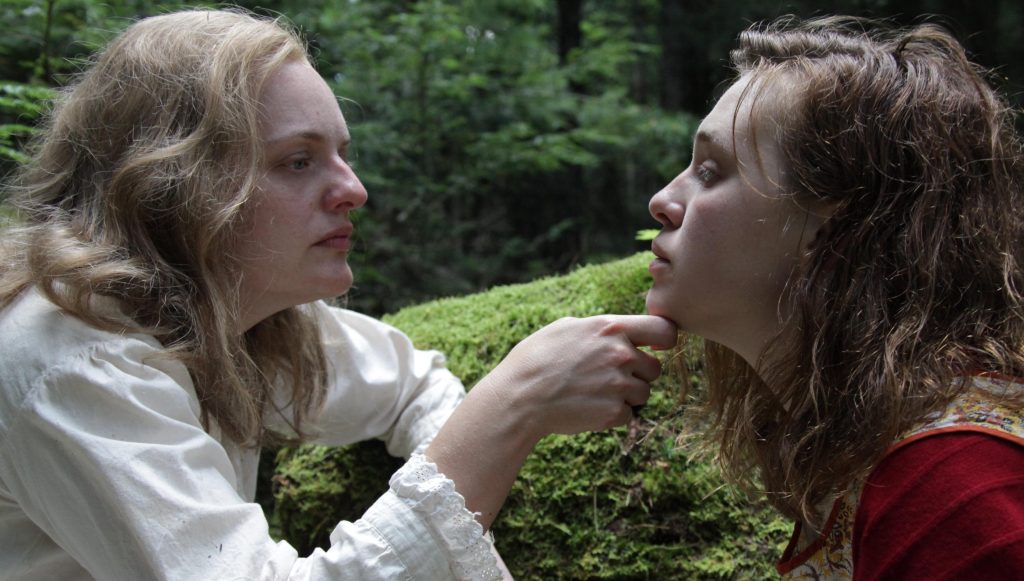
Shirley Jackson is one of the most famous American authors. Her story, ‘The Lottery’, is a staple on US high school syllabus’s and one of her most famous novels, The Haunting of Hill House, was loosely adapted for Netflix last year. Shirley, the latest film from Josaphine Decker, turns its gaze on the ghosts that haunted Jackson herself, namely paranoia and depression.
This pick is mostly about Elizabeth Moss, who plays Jackson, though I think the direction and writing are masterful too. Moss has provided some brilliant work on both film and TV in the years since leaving Mad Men such as in last year’s claustrophobic and chaotic Her Smell, her supporting role in the satirical artworld comedy The Square, or her comedic contribution to Jordan Peele’s Us. She has made a name for herself for giving spirited and wrought performances, and Shirley might well be the pinnacle. As Jackson, she exudes unpredictability, panic, and yet remains engrossing.
Never Rarely Sometimes Always
(dir. Eliza Hittman)

I was a strong critic of Eliza Hittman’s debut, Beach Rats, when it arrived in 2017. While Harris Dickinson’s performance was commendable, the film felt like an inauthentic look at queer life without really doing the legwork. Never Rarely Sometimes Always is the complete opposite; a well-considered feminist polemic that sits with you long after the credits roll.
As the story of a working-class teenage girl travelling to New York City to get an abortion, the film has a specific brand of American social realism that wraps itself around you. The central performance, by Sidney Flanigan, is one of the most outstanding performances of the year and I couldn’t shake the scene from which the film gets its name for weeks after watching it.
A lot of the visual flair that Hittman brought to Beach Rats (its cinematography, to be fair, was stunning) is honed further here, and the gritty dangers of New York are captured with simple, but gorgeous, shots.
The Assistant
(dir. Kitty Green)
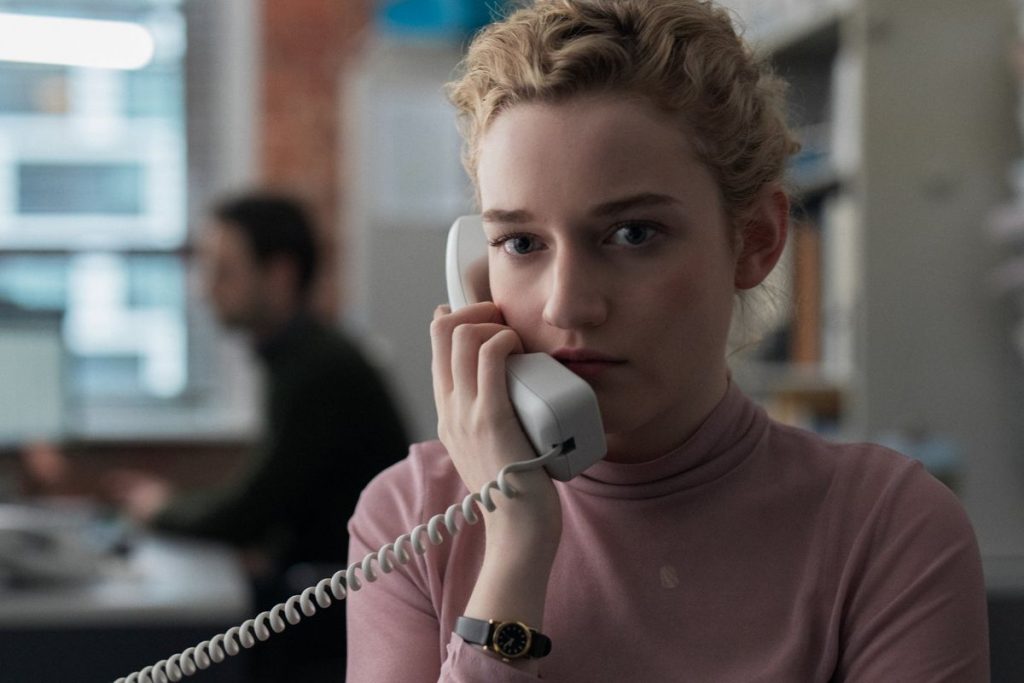
Again, this pick is a lot to do with its central performance. In The Assistant, Julia Garner plays the only female assistant to a predatory film producer. As sensational as that may sound, for the most part, we never see the producer. Instead, we follow those around him who cover for him, aid him, or find their morals are in question.
Throughout a single, long, day Garner’s assistant signs off large cheques to undisclosed women, watches as young starlets are co-opted into signing NDA’s, and listens as her male colleagues dismiss it all. All this, which could have been seen as reactionary or in bad taste, becomes something sensitive and gripping in the hands of director Kitty Green in her fiction film debut.
Stray
(dir. Elizabeth Lo)

Is it insane to say that one of the greatest performances of 2020 comes from a Turkish street dog? Well, it might be insane, but it’s true.
Stray, Elizabeth Lo’s stunning documentary, follows Zeytin, a stray dog living on the streets of Istanbul. Due to Turkish law, stray dogs can’t be detained or killed, and so they often roam the streets in huge numbers searching for kindness and food. Zeytin, an independent and oddly charismatic dog, spends his days idling around the streets, fighting with other dogs, and forming a bond with a group of Syrian refugees displaced by the war in their country.
Impressive for its emotional depth as well as as a feat of production (Lo followed him every day for six months), Stray is, ultimately, a didactic story of resilience, connection, and love.
Lovers Rock
(dir. Steve McQueen)
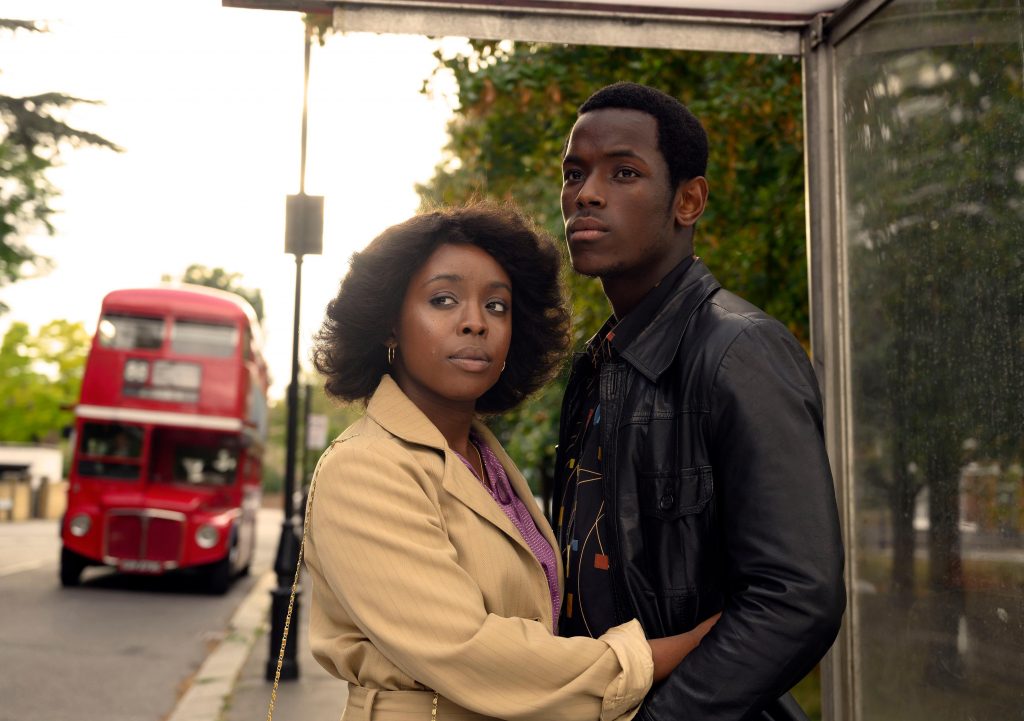
I was introduced to Steve McQueen through his 2011 drama about sex addiction, Shame. Lovers Rock could not be further from that in terms of subject matter, though McQueen’s slow and lingering style shines through. The film, which is part of the anthology Small Axe, follows a group of mostly young people at a party in 1980’s London.
It’s hard to point out precisely what makes Lovers Rock so appealing. It’s an ode to community, to music, to sisterhood, to young love, and blackness. It is also meandering and experimental, opting only loosely to consider plot and instead position the viewing as a guest at the party the film revolves around. Amarah-Jae St. Aubyn, the closest thing the film has to a lead character, is beautifully strong and restrained in the role of Martha and Michael Ward is handsome and stoic opposite her.
Clemency
(dir. Chinonye Chukwu)
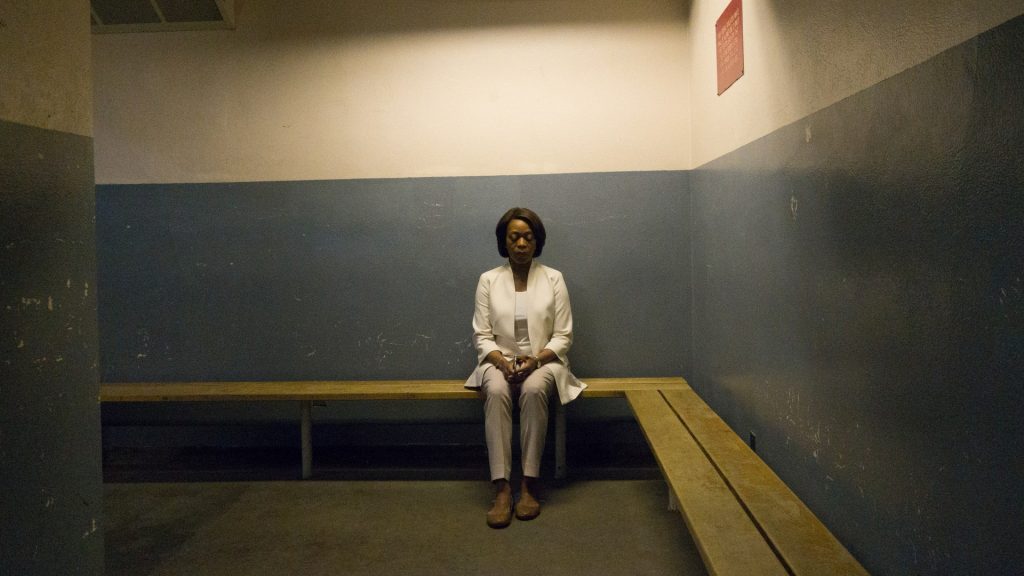
In a year of excellent performances, Alfre Woodard’s in Clemency is probably the most under-seen. As prison warden Bernadine Williams, Woodard navigates the complexity of a life spent presiding over executions – mostly of young black men. As Bernadine considers her legacy and her position, she tries to connect with Anthony Woods (played with quiet restrain by Aldis Hodge), a young inmate who has lost his final appeal despite maintaining his innocence and is sentenced to death.
In my opinion, Woodard was grossly overlooked during awards season earlier this year and deserved not only a nomination but a win at the Oscars. Still, it’s nice to see a seasoned actor get a role that is worthy of her immense talent, and Clemency provides just that. It also works as a great debut for Chinonye Chukwu, who recently signed on the direct the first to episodes of HBO’s Americanah adaption and announced her second feature will look at the murder of Emmett Till.
The Human Voice
(dir. Pedro Almodóvar)

Coming in at only 30 minutes, Pedro Almodóvar’s short film The Human Voice, is one of the most refined and fleeting pleasures of the year. Shot during lockdown earlier this year and put together in time for Autumn, the film follows a woman (played with campy reverence by Tilda Swinton) as she takes a phone call from the man she loves. Dressed in bright clashing colours and wandering around her luminous apartment with her Airpod’s in, she languishes over the end of their relationship in what is, essentially, a monologue.
The film, loosely adapted from the play of the same name by Jean Cocteau, keeps the slick and vibrant melodrama style that has come to characterize Almodóvar’s more recent work and, when paired with Swinton, who irrevocably belongs in that world, it’s pure magic.
Mattias and Maxime
(dir. Xavier Dolan)
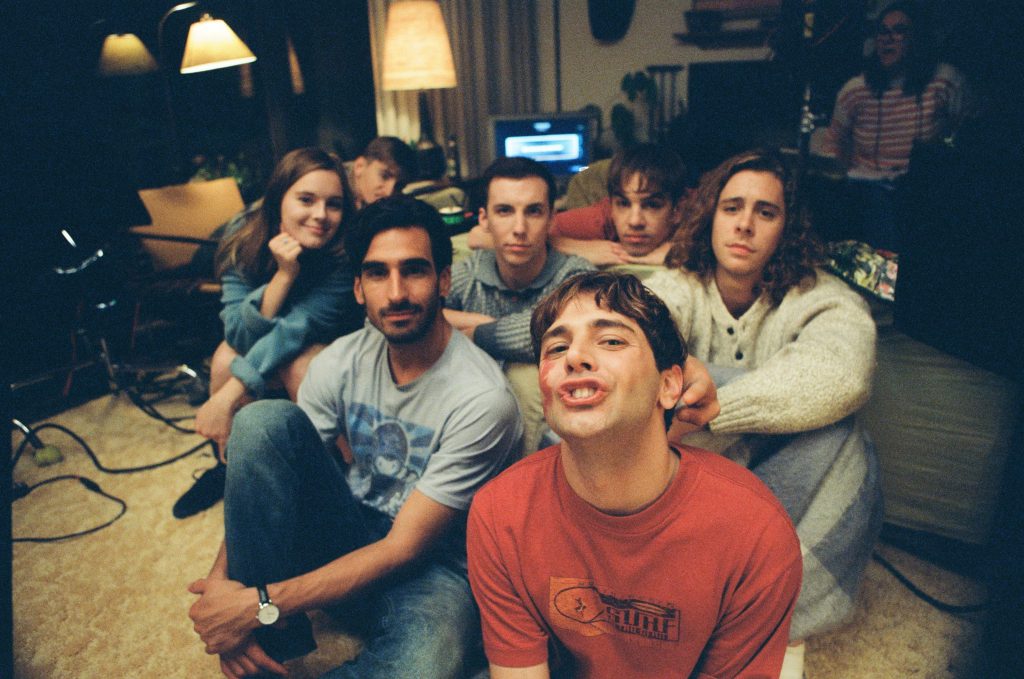
Xavier Dolan’s lavish, and more recently star-studded, melodramas can have a somewhat marmite effect on some. His commitment to using pop music, his angst, or his youth can lead people to either love or hate the work he puts out. Mattias and Maxime is a return to the smaller-scale filmmaking that Dolan made his name with, following two friends whose relationship is tested when they’re asked to kiss on camera for a student film.
I’m, more often than not, in the “love it” camp when it comes to Dolan. In Mattias and Maxime, he offers a tender portrait of young love and how it can be confused when it’s looked at through the prism of friendship. Dolan, who also stars as Maxime, is suitably moody and aggressive opposite Gabriel D’Almeida Freitas as Mattias, a beautiful (supposedly straight) young professional.
What I love about Dolan’s work, and it’s present here, is his commitment to queer romance on screen. There is a gorgeously hot and romantic kiss during a house party that made me thump the sofa with glee as I watched and he also continues to highlight Hollywood’s sexiest male stars as Harris Dickinson shows up as a douchey American businessman who really wants to go to a strip club (why, oh, why do I find him so hot in the role? *dials therapist*)
One Night in Miami
(dir. Regina King)
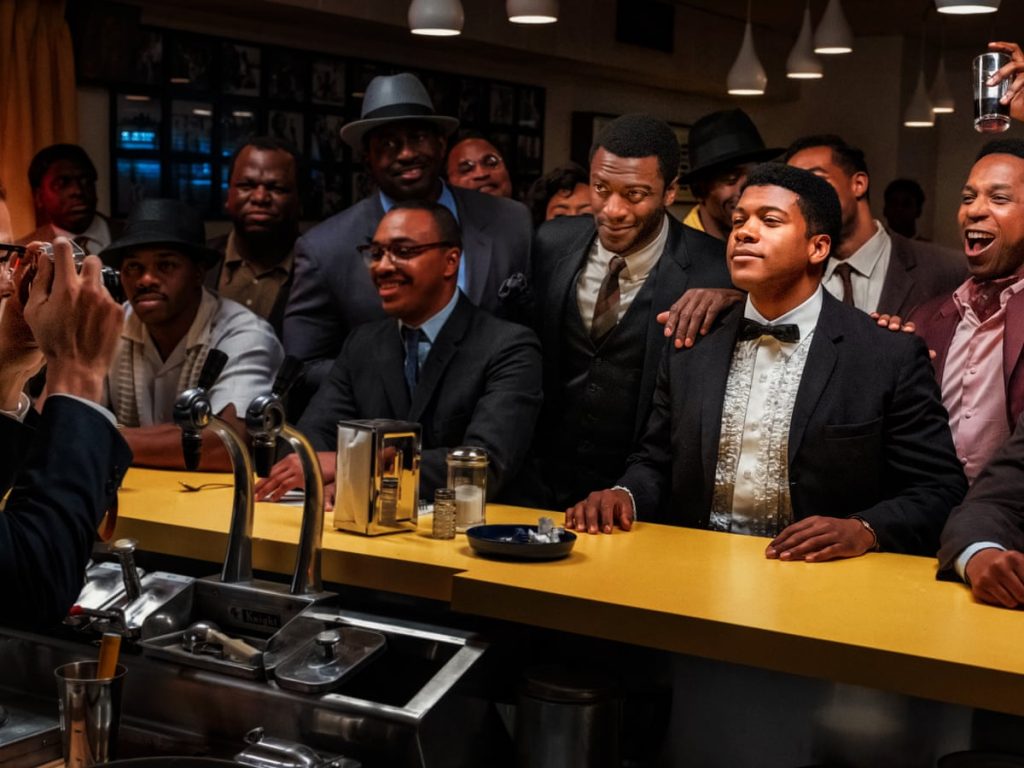
In September, Regina King became the first black woman to have a film premiere at the Venice Film Festival. Outside of this, or maybe in spite of it, King’s film, which follows four famous black civil rights figures over one night, is a strong, political, and powerful film that dissects so much of what we’ve been talking about this year. How do we make progress, with peace or violence? How do we advocate for change, with passion or restraint?
King, who is critically lauded as an actor and director of television, deftly guides this dialogue-heavy drama in a slick and smooth manner. The performances of her four leads are distinct, and each offers depth and insight. It’s likely to be high on the list of awards ballots come January.
You can read my full review here.
Also Read: How Film Changed Me: On Nicole Kidman


